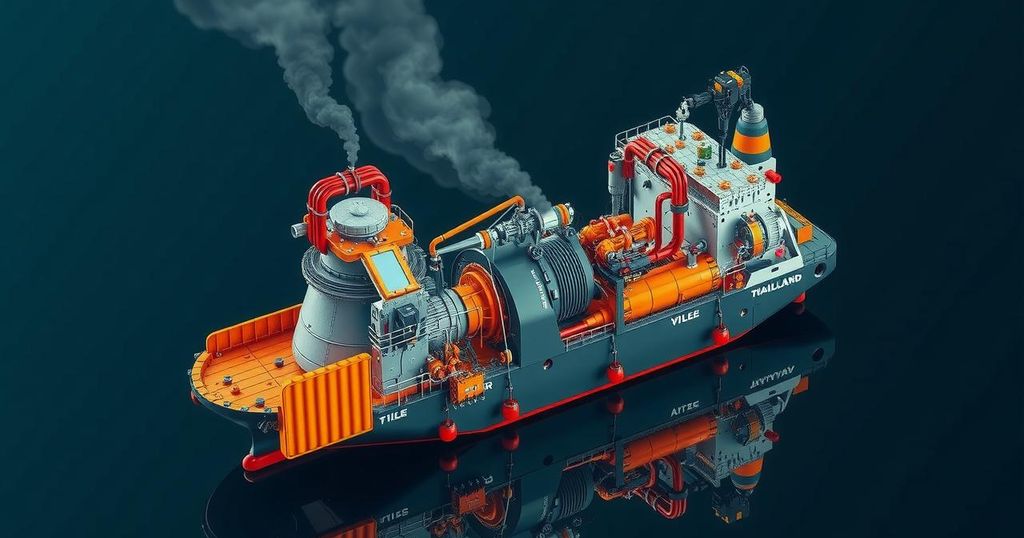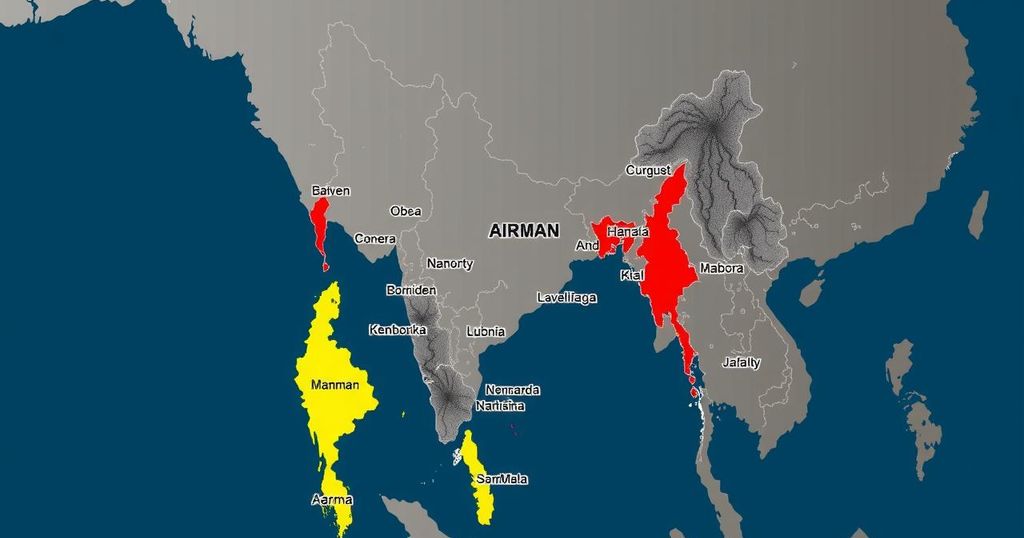Politics
AMP, AMPICKA APICHABUKKO, ASIA, CHINA, CHINA ATOMIC ENERGY, CHINA NATIONAL NUCLEAR CORPORATION, CNNC, CNNC INSTITUTE OF ATOMIC ENERGY, ENERGY, EXPORT, INDUSTRY, INNOVATION, INSTITUTE OF ATOMIC ENERGY, MEXICO, MINIATURE NEUTRON SOURCE REACTOR, NORTH AMERICA, NUN, NUNN THEMONRONG, ROBOTICS, SUR, SURANAREE UNIVERSITY OF TECHNOLOGY, THAILAND, THAILAND PEACEFUL USE OF ATOMIC ENERGY, THAILAND PEACEFUL USE OF ATOMIC ENERGY OFFICE
Nia Simpson
Microreactor Project for Thailand Advances with Shipment from China
China has successfully shipped systems for a Miniature Neutron Source Reactor to Suranaree University of Technology in Thailand, marking the project’s entry into construction. The reactor will support cancer treatment and research with a focus on safety and cost-efficiency. This initiative exemplifies China and Thailand’s cooperation in nuclear energy research.
On November 12, 2023, a significant ceremony was conducted at the China National Nuclear Corporation (CNNC) Institute of Atomic Energy to commemorate the shipment of systems and equipment for the Miniature Neutron Source Reactor (MNSR) intended for construction at Suranaree University of Technology in Thailand. The ceremony was graced by notable figures, including Ms. Ampicka Apichabukko, the Deputy Secretary-General of the Thailand Peaceful Use of Atomic Energy Office, and Mr. Nunn Themonrong, Vice President of Suranaree University of Technology, along with representatives from the Chinese Atomic Energy sector.
The CNNC announced that this event signifies the official transition of the Thai microreactor project into the construction phase. The MNSR, designed independently by the Institute of Atomic Energy, operates at a rated power of 30kW and boasts features that render it both safe and environmentally friendly. Its design allows for low operational costs and maintenance, making it appropriate for installation in densely populated regions such as universities and hospitals, serving various applications, including neutron capture therapy for cancer treatment.
The Institute has a rich history in microreactor development, having established its prototype in 1984 and successfully designing ten microreactors to date. This project, initiated in 2015, marks the sixth export of the MNSR design and underscores the collaborative efforts between China and Thailand within the realm of nuclear energy. The Institute emphasized that this initiative serves as a model for enhancing research reactor technology applications, fostering technological innovation, and cultivating industrial development and talent exchange between the two nations.
The deployment of microreactors represents a significant advancement in nuclear technology, particularly for research and medical applications. The Miniature Neutron Source Reactor (MNSR), designed for localized research capabilities, provides a safe and efficient means of conducting nuclear research while minimizing radiation exposure risk. This type of reactor is especially beneficial in urban settings, supporting educational institutions, research centers, and healthcare facilities. The collaboration between China and Thailand exemplifies the potential for international cooperation in advancing scientific research and technological innovation in the field of nuclear energy.
In conclusion, the shipment of the Miniature Neutron Source Reactor systems to Thailand marks a significant step in the collaborative efforts between China and Thailand in nuclear technology. With its focus on safety, cost-effectiveness, and suitability for urban environments, the MNSR is poised to enhance research capabilities and contribute to advancements in cancer treatment and other scientific applications. The project also serves as a testament to the mutual benefits of international partnerships in fostering innovation and development within the nuclear energy sector.
Original Source: www.world-nuclear-news.org








Post Comment